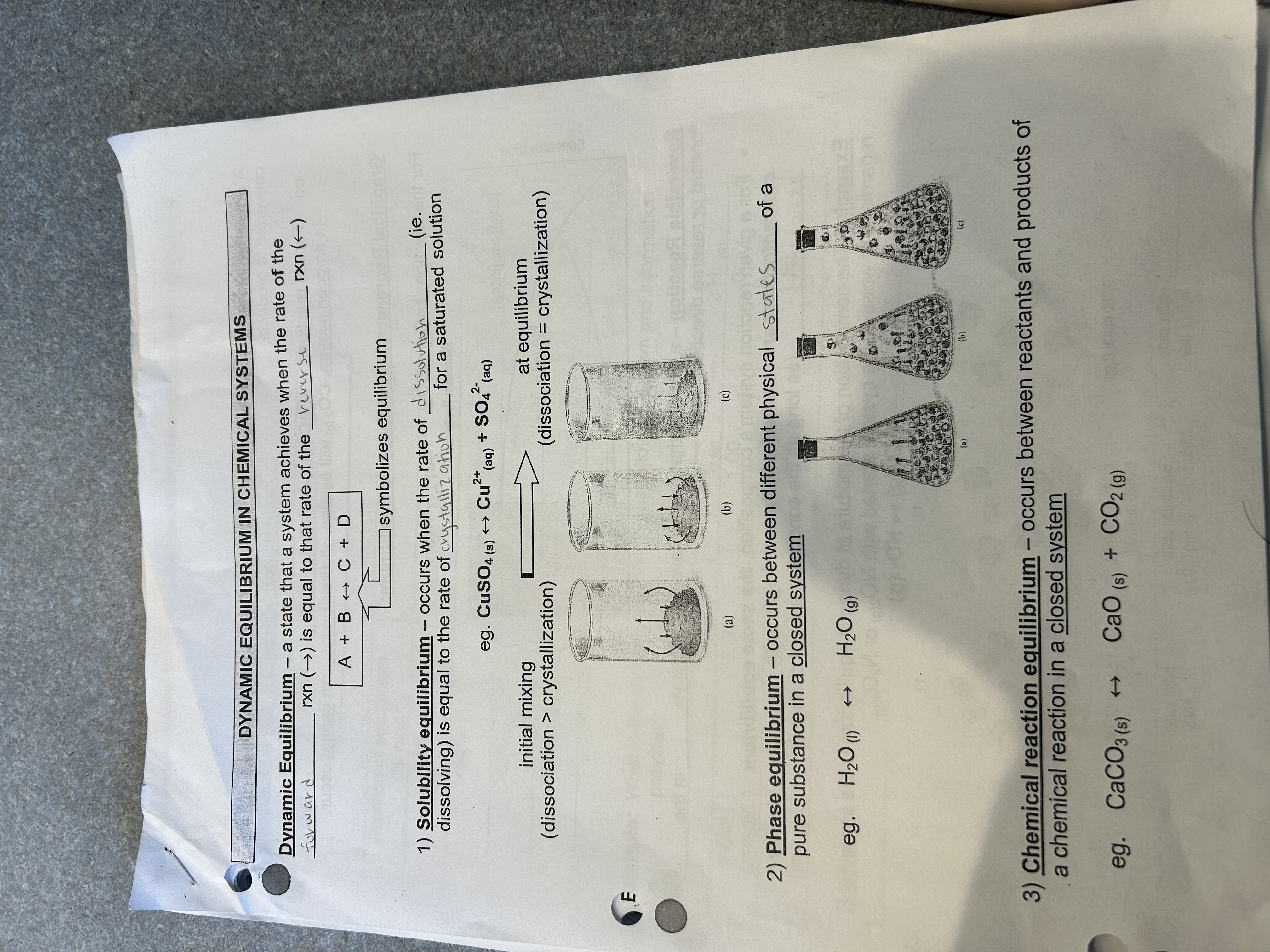What is dynamic equilibrium in chemical systems and what are the types of equilibrium?

Understand the Problem
The question is seeking to understand the concept of dynamic equilibrium in chemical systems, specifically the different types of equilibria including solubility, phase, and chemical reaction equilibrium.
Answer
Dynamic equilibrium occurs when forward and reverse reaction rates are equal. Types: solubility, phase, and chemical reaction equilibrium.
The final answer is dynamic equilibrium occurs when the rate of the forward reaction equals the rate of the reverse reaction in a reversible system, creating constant concentrations of all species. Types include solubility equilibrium, phase equilibrium, and chemical reaction equilibrium.
Answer for screen readers
The final answer is dynamic equilibrium occurs when the rate of the forward reaction equals the rate of the reverse reaction in a reversible system, creating constant concentrations of all species. Types include solubility equilibrium, phase equilibrium, and chemical reaction equilibrium.
More Information
Dynamic equilibrium involves reversible reactions where no net change is observed, despite the continuous, opposing processes occurring at the same rate.
Tips
A common mistake is assuming equilibrium means reactions stop. In dynamic equilibrium, reactions continue at equal rates.
Sources
- Dynamic equilibrium - Wikipedia - en.wikipedia.org
- 15.1: Dynamic Equilibrium - Chemistry LibreTexts - chem.libretexts.org
AI-generated content may contain errors. Please verify critical information